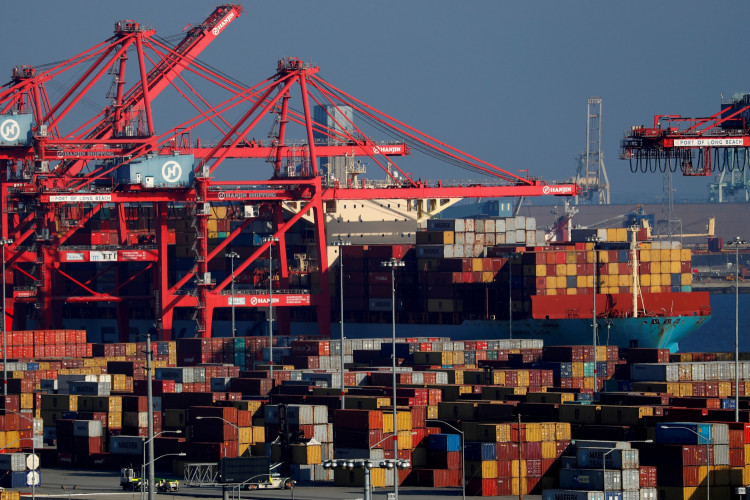Global pharmaceutical stocks fell sharply Wednesday after President Donald Trump reiterated plans to impose a "major" tariff on drug imports, escalating fears across an industry already grappling with regulatory uncertainty and weakening investor confidence. The announcement came as Trump's broader reciprocal tariff regime took effect, further roiling international markets.
Shares of leading U.S. drugmakers, including Pfizer, Merck, Eli Lilly, and Gilead Sciences, slid between 2% and 4% in premarket trading. In Europe, healthcare stocks led the selloff on the STOXX 600 index, with the sector falling more than 5%, marking its worst single-day performance since March 2020. AstraZeneca, GSK, Roche, Sanofi, and Novartis shares dropped between 5% and 6.5%.
India's pharmaceutical sector also declined, with companies such as Glenmark Pharma, Biocon, and IPCA Laboratories falling up to 5.5% on the Nifty Pharma Index. The benchmark Nifty 50 dropped 0.6% overall. The U.S. accounts for roughly one-third of India's pharmaceutical exports, primarily generics.
The White House has not detailed the timing or scale of the proposed drug tariffs, but Trump told donors at the National Republican Congressional Committee dinner that "once we do that, they're going to come rushing back," referring to U.S. pharmaceutical manufacturing. "The United States doesn't produce its own pharmaceuticals anymore," Trump said, adding that the tariffs would reverse that trend.
Barclays analysts noted that Europe accounts for nearly 80% of the U.S. trade deficit in biopharmaceuticals, and European Union exports of medical and pharmaceutical products to the U.S. totaled €90 billion ($97 billion) in 2023.
BMO Capital Markets analyst Evan Seigerman warned that "these will likely do little to shift manufacturing back to the U.S.," citing the complexity of the global pharmaceutical supply chain. "We are strongly opposed to tariffs on any pharmaceuticals," he said.
Beyond tariffs, the pharmaceutical sector is also contending with uncertainty at the Food and Drug Administration following the ouster of Peter Marks, the former head of the FDA's Center for Biologics Evaluation and Research. Analysts say the disruption could delay drug approvals, particularly for smaller firms with limited pipelines.
"We think the regulatory uncertainties are actually a much larger risk to the space than the tariff uncertainties," said Brian Abrahams, global head of biotechnology research at RBC Capital Markets.
Pfizer shares have fallen more than 10% over the past five days, while Merck is down over 9% and Amgen more than 8%. The Dow Jones Pharmaceutical Index has shed over 12% in the past month.
Eli Lilly, whose GLP-1 drugs are largely manufactured in Ireland, has seen its shares fall over 9% in recent days. CEO David Ricks said tariffs would likely increase costs for manufacturers but not for patients.





